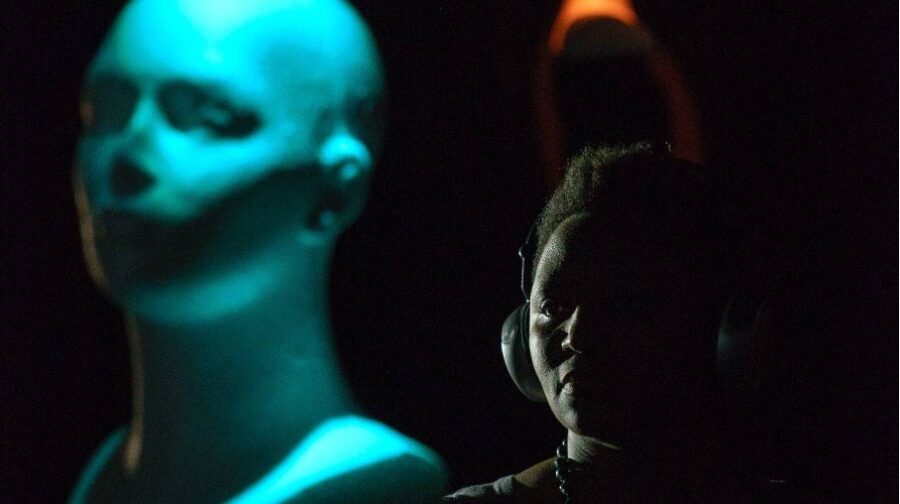112-year-old Kanyoni Ladislas, grandfather of Season’s Composer Aurélie Nyirabikali Lierman, is a legend. During his long life as a hunter and a traditional doctor, he saw colonisation, the independence struggle, genocides and post-war massacres transform Rwanda into the fragile country it is today. This inspired Lierman to createUMVA!
In this work Lierman further breaks down the boundaries between radio art and storytelling. Via headphones she immerses you in a hybrid sound world with instrumental and vocal music, sound effects, Afrique concrète and abstract electronics.
Umva! is a new performative installation, and phase three of Aurélie Nyirabikali Lierman’s ongoing research into (modern) forms of animism and how animist worldviews have managed to survive despite fierce repression through heavy colonisation.
Lierman, herself born in Rwanda but raised in Belgium, draws direct inspiration from a series of life-changing encounters with Kanyoni Ladislas, her almost 112-year-old Rwandan grandfather. Lierman considers him a miracle of our current times, since, to her knowledge, he is the only person who lived through all the major (often horrific) events and transformations a Rwandan could possibly experience in the 20th and early 21st centuries.
He has seen the pre-colonial country of his youth go through a lot: two colonisations (German and Belgian), the independence struggle of the 1950s, the genocide and post-war massacres of the 1990s, and the country’s current fragile stability.
Apart from being one of the oldest people to have ever lived on this planet, he is also one of the last living traditional hunters and doctors in Rwanda. People sometimes travel up to 100 km, often barefoot, to be cured by Kanyoni Ladislas. In his younger years, he made epic hikes in the densely forested subalpine slopes of the Virunga Mountains: to collect herbs and minerals for his medical practice, to hunt all kinds of game and also for beekeeping and honey collection.
Kanyoni Ladislas has lived all his life at the foot of the Karisimbi volcano, Lierman’s own birthplace, just on the border with the Democratic Republic of Congo. In Kanyoni Ladislas’s mind, that border did not really exist. He always roamed freely wherever the journey led.
An African proverb says: “When an African man dies, a library burns to the ground”. The conversations between grandfather and granddaughter are also a challenge to go back and forth between spatial, temporal, cultural and linguistic boundaries. But above all, an enduring invitation to actual listening: both active and passive, with the ear and in other ways.
